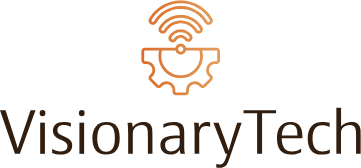Introduction
In today’s data-driven world, the healthcare sector has witnessed a dramatic shift towards utilizing data for research and patient care. However, this reliance on data raises significant privacy concerns, particularly regarding patient confidentiality and data security. As a solution, AI-generated synthetic data has emerged as a powerful tool that addresses these concerns while allowing for robust research opportunities.
The Rise of AI-Generated Synthetic Data
Synthetic data is artificially generated data that mimics the statistical properties of real-world data without exposing any actual patient information. With advancements in artificial intelligence and machine learning, researchers can create realistic datasets that retain the essential features of original data yet do not contain any personally identifiable information (PII).
Historical Context
The concept of synthetic data is not new; however, its application in healthcare research has gained momentum over the past decade. Early attempts at data anonymization often left researchers grappling with the trade-off between data utility and privacy. The introduction of advanced AI techniques has paved the way for generating data that is both useful and secure.
Benefits of AI-Generated Synthetic Data
- Enhanced Privacy: By generating data that does not correspond to real individuals, privacy risks are greatly minimized. Researchers can analyze trends and patterns without compromising patient confidentiality.
- Increased Data Availability: Synthetic data can be generated in large quantities, providing researchers with access to vast datasets that may not exist in the real world due to privacy constraints.
- Cost-Effectiveness: The costs associated with data collection can be high, particularly in healthcare. Synthetic data generation reduces the need for expensive data sourcing methods.
- Improved Research Quality: Researchers can conduct studies with high-quality, diverse datasets that might otherwise be limited by real-world data availability.
Addressing Privacy Concerns
One of the most pressing issues in healthcare research is maintaining patient privacy. Traditional data-sharing methods often involve complex regulations and protocols that can hinder research progress. AI-generated synthetic data eliminates many of these hurdles:
- No PII Exposure: As synthetic data is generated independently of real patient data, there is no risk of exposing personal information.
- Regulatory Compliance: Using synthetic data can help organizations comply with regulations such as HIPAA, making it easier to share data for research purposes.
- Ethical Considerations: Researchers can navigate ethical dilemmas surrounding data use more effectively when working with synthetic datasets.
Challenges and Limitations
While AI-generated synthetic data offers numerous benefits, challenges remain:
- Data Fidelity: Ensuring that synthetic data accurately represents real-world scenarios can be difficult. Researchers must validate the datasets to confirm their reliability.
- Model Bias: If the algorithms used to generate synthetic data are biased, the results may also be skewed, potentially leading to flawed research outcomes.
- Acceptance by Stakeholders: Gaining trust from healthcare professionals and institutions regarding the validity of synthetic data can be a hurdle.
Future Predictions
The future of AI-generated synthetic data in healthcare research appears promising. As technology continues to advance, we can expect:
- Increased Adoption: More institutions will embrace synthetic data as a standard practice, integrating it into their research methodologies.
- Enhanced Algorithms: The development of more sophisticated AI models will improve data fidelity and reduce biases, leading to more reliable outcomes.
- Greater Collaboration: Researchers and organizations will likely collaborate more, sharing synthetic datasets to advance collective knowledge and innovation.
Real-World Applications
Several organizations have begun utilizing AI-generated synthetic data to enhance their research efforts:
Case Study: Clinical Trials
In clinical trials, patient recruitment can be a significant bottleneck. Researchers have employed synthetic data to simulate diverse participant populations, enabling them to optimize trial designs and improve outcomes.
Case Study: Predictive Analytics
Healthcare providers leverage synthetic datasets to develop predictive analytics models. By training algorithms on synthetic data, they can predict disease outbreaks, optimize resource allocation, and improve patient care without compromising privacy.
Cultural Relevance
The integration of synthetic data in healthcare also reflects broader cultural shifts toward data protection and privacy. As society becomes more aware of data rights, the demand for privacy-preserving technologies like AI-generated synthetic data will increase.
Conclusion
AI-generated synthetic data represents a transformative approach to addressing healthcare privacy concerns in research. By providing a secure and effective means of conducting research, it holds the potential to revolutionize the healthcare industry. As organizations continue to recognize the value of synthetic data, the future of healthcare research looks brighter, fostering innovation while safeguarding patient privacy.
Call to Action
Healthcare professionals, researchers, and policymakers should explore the potential of AI-generated synthetic data to enhance their research efforts while prioritizing patient privacy. By embracing this innovative approach, we can pave the way for groundbreaking advancements in healthcare research.

